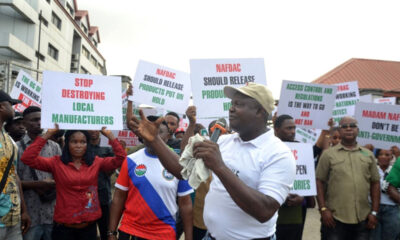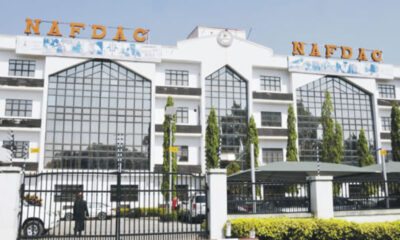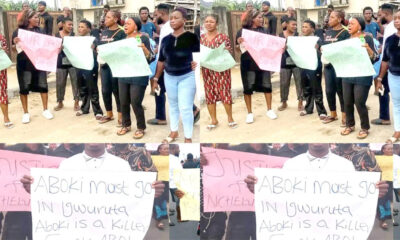metro
Labour protests at NAFDAC over ban on sachet alcoholic beverages
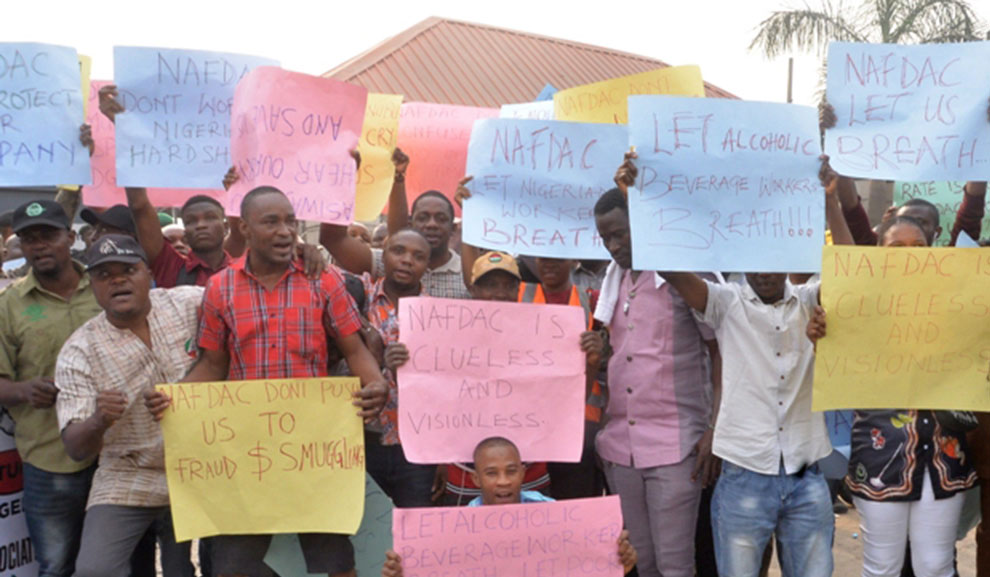
Labour protests at NAFDAC over ban on sachet alcoholic beverages
Organised Labour, yesterday, stormed the Lagos office of the National Agency for Food, Drug Administration and Control, NAFDAC, over the ban and shut down of production lines of companies manufacturing alcoholic drinks in sachets and small bottles below 200ml.
Led by leaders of Trade Union Congress, TUC, of Nigeria and Food, Beverages and Tobacco Senior Staff Association, FOBTOB, Labour rejected the ban on the production of alcoholic beverages in sachets and small bottles by the Federal Government, saying no fewer than 45,000 jobs and billions of Naira investments are at the risk of going down the drain.
The protesting workers, who stormed NAFDAC’s office at Plot 1, Industrial Estate, Apapa-Oshodi expressway, Isolo, Lagos State, displayed placards with various inscriptions, to convey their grievances.
The protest followed a two-day enforcement exercise by NAFDAC operatives in Ota, Ogun State, leading to the shutting down of some factories,
NAFDAC seals production lines
Vanguard gathered that NAFDAC’s enforcement’s team was led by Mr. Adeniran Kazeem, which swooped on beverage firms in the Sango-Ota area of Ogun State, sealed the production lines in companies such as Shash Industries Limited located in Iyesi- Ota, Nigerian Distilleries Limited, Intercontinental Distilleries Limited among others.
Speaking on what led to the operations, Kazeem said “There was a committee of the Federal Ministry of Health and NAFDAC on one hand, the Federal Competition and Consumer Protection Commission, FCCPC, and the Industry represented by the Association of Food, Beverages and Tobacco Employers, AFBTE, Distillers and Blenders Association of Nigeria, DIBAN, in December 2018. The committee agreed that such items should no longer be produced or imported from December 31, 2023.
READ ALSO:
- Police arrest 17 suspects for murder, kidnapping in Ebonyi
- Amotekun intercepts 149 suspected criminals inside trucks in Ondo
- AFCON 2023: Osimhen declared fit for South Africa match …to join teammates in Bouake
“The five years period of grace is to allow the manufacturers to dispose of whatever they still had in stock. NAFDAC has since stopped to approve the production or importation of such items by anybody in this country.
Labour protests at NAFDAC over ban on sachet alcoholic beverages
metro
Army Kills Notorious Kidnapper, Rescues Four Hostages in Edo

Army Kills Notorious Kidnapper, Rescues Four Hostages in Edo
Troops of the Nigerian Army’s 4 Brigade under 2 Division, working alongside the Edo State Security Corps, have successfully neutralised a notorious kidnapper, rescued four abducted victims, and arrested another suspect during coordinated security operations in Edo State. The operations were conducted on March 3, 2026, under Operation IGBO DANU 1, targeting criminal hideouts in Warake Forest, Auchi Local Government Area, and Ujemen in Esan West Local Government Area.
According to Capt. Kennedy Anyanwu, Assistant Director of Army Public Relations for 4 Brigade, the troops acted after receiving reports of gunshots in Warake Forest. During the night operation, soldiers, supported by personnel from the Nigerian Army School of Electrical and Mechanical Engineers and local vigilantes, confronted the gang. The encounter resulted in the death of a notorious kidnapper who had been terrorising the Auchi area, while other criminals abandoned their captives and fled into the forest.
Four victims — Stella Abbas (29), Tina Ododa (19), Razak Rashid (27), and Mutanibi Kalifa (16) — were rescued unharmed and later reunited with their families. The troops also recovered several items from the scene, including ₦650,000 in cash, mobile phones, a power bank, and footwear believed to belong to the criminal gang.
READ ALSO:
- Lai Mohammed: Peter Obi Couldn’t Have Won 2023 Election Even With 10 Million Extra Votes
- FG Allocates ₦5.6bn for New Carter Bridge as Old Structure Fails Safety Test
- Iran Launches Missiles at Israel as Middle East War Enters Sixth Day
In a separate operation in Ujemen, Esan West Local Government Area, the military and Edo State Security Corps raided a suspected kidnapper’s hideout. During the raid, a 39-year-old suspect named Omogbegha Solomon was arrested. Troops discovered a shrine containing charms and photographs of various individuals in an abandoned room within the compound. The shrine was destroyed on-site, and the suspect was handed over to the Nigeria Police Force, Ekpoma Division, for further investigation.
Brigadier General Ahmed Balogun, Commander of 4 Brigade, commended the troops for their bravery and professionalism, noting that these operations align with directives from the General Officer Commanding (GOC), 2 Division, Major General Chinedu Nnebeife, to maintain peace and security across Edo State.
The operations reflect an intensified offensive against kidnapping and criminal syndicates, particularly in forested regions of the state that have frequently harboured criminals. Residents and community leaders have welcomed the success, urging sustained action to dismantle criminal networks and protect lives and property.
Army Kills Notorious Kidnapper, Rescues Four Hostages in Edo
metro
Islamic Scholar Barred From Ramadan Tafseer After Criticising Tinubu, Governors

Islamic Scholar Barred From Ramadan Tafseer After Criticising Tinubu, Governors
The leadership of Jama’atu Izalatil Bid’ah Wa Iqamatis Sunnah (JIBWIS) has officially suspended prominent Islamic scholar Sheikh Alkali Abubakar Salihu Zaria from conducting his annual Ramadan Tafseer in Damaturu, Yobe State, following controversial remarks he made about Nigeria’s political leadership.
The decision, which has sparked widespread debate across Northern Nigeria, was taken after a high-level meeting of the JIBWIS Council of Ulama led by its National Chairman, Sheikh Muhammad Sani Yahaya Jingir.
Following the meeting, the cleric was barred from continuing his Tafseer sessions at the Mokas Mosque in Damaturu, where he has traditionally delivered Qur’anic interpretations during the holy month of Ramadan.
Reason for the Suspension
According to the Islamic organization, the suspension was based on what it described as a breach of JIBWIS preaching protocols. The council accused the scholar of using inflammatory language and deviating from the organization’s established religious methodology while interpreting the Holy Qur’an.
Leaders of the group stressed that Tafseer sessions are meant to focus strictly on religious teachings, moral guidance, and spiritual reflection, especially during Ramadan, rather than political commentary capable of generating controversy.
READ ALSO:
- ICPC, NRC Forge Anti-Graft Alliance to Safeguard Rail Assets
- Pedro Sánchez Rejects Trump Trade Threat, Says ‘No to War’ as EU Backs Spain
- Nigeria officially out of 2026 World Cup as FIFA confirms DR Congo for play-offs
Sermon That Triggered the Controversy
The controversy followed a recent Tafseer session in which Sheikh Alkali launched a strong criticism of the federal government and political leaders in the North over the persistent insecurity crisis, including banditry, kidnappings and violent attacks affecting many communities.
During the sermon, he lamented what he described as the dehumanisation of citizens by bandits and kidnappers, painting a grim picture of victims’ suffering, including abuse during captivity.
The cleric also questioned the relationship between state governors and Bola Tinubu, Nigeria’s president, suggesting that political leaders were showing excessive loyalty to the presidency.
“One of the signs of catastrophes this generation will likely face is the tendency to revere individuals out of fear of their machinations,” he said.
He went further to state:
“Look at how state governors fear Tinubu much more than they fear Allah. If you are in the APC, you are treated like a saint. If you are a member of the opposition, you will be treated like a devil. One will be confronted with trump-up charges. Who is Tinubu? You deceived us. You are a deceiver and cheat.”
Addressing the impact of insecurity, the cleric also described the ordeal of kidnapping victims.
“Today, people are abducted and treated as though they are cattle. They are taken into the bush and ransom negotiations begin. Families plead while victims are beaten and tortured. Sometimes they stamp their feet on their victim’s stomach even during Ramadan,” he said.
Sheikh Alkali’s Reaction
Following the announcement of his suspension, Sheikh Alkali addressed his followers through a message posted on his Facebook page, urging them to remain calm and avoid confrontation with the leadership of the organization.
The cleric maintained a conciliatory tone, emphasizing that his removal from the mosque was part of God’s divine decree and encouraging supporters to accept the decision peacefully.
“To my followers, relatives and associates, I urge you to take heart. This was destined to happen. I cannot exceed the days Allah has written for me to lead Ramadan Qur’anic exegesis in Damaturu,” he wrote.
He also reaffirmed his respect for Sheikh Jingir, describing him as a father figure and urging his followers to remain disciplined and loyal to the leadership of the Islamic organization.
Public Reaction
The development has triggered intense debate on social media and within religious circles, with opinions sharply divided.
Supporters of the cleric praised him for “speaking truth to power” and highlighting the suffering of ordinary Nigerians affected by insecurity.
However, critics argued that the mosque pulpit should not be used for political criticism, insisting that religious platforms must remain focused on spiritual guidance rather than political agitation.
Others say the incident reflects a broader tension in Nigeria over the role of religious leaders in addressing governance and societal issues, particularly in regions facing prolonged security challenges.
Despite the controversy, the leadership of JIBWIS has maintained that its decision was aimed at preserving discipline and maintaining the integrity of religious preaching, especially during the sacred period of Ramadan.
Islamic Scholar Barred From Ramadan Tafseer After Criticising Tinubu, Governors
metro
Court Orders INEC Chairman to Appear Over Alleged Contempt of Court
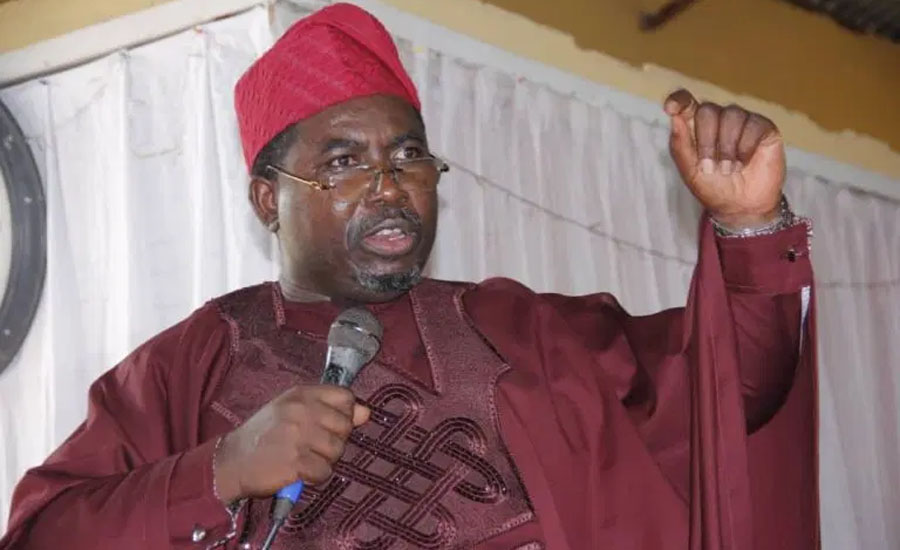
Court Orders INEC Chairman to Appear Over Alleged Contempt of Court
The Federal High Court in Abuja has ordered the Chairman of the Independent National Electoral Commission (INEC), Prof. Joash Amupitan, to personally appear before the court on March 10, 2026, over an alleged contempt of court charge filed by the National Rescue Mission (NRM).
Justice Obiora Egwuatu issued the directive on Wednesday after the INEC chairman failed to attend court proceedings in the matter.
During the hearing, counsel to INEC, Mr. M. S. Bawa, requested an adjournment, informing the court that the commission’s chairman could not attend due to an emergency. He added that the commission had already filed a counter-affidavit challenging the contempt proceedings and urging the court to dismiss the application.
However, the request was opposed by counsel to the National Rescue Mission (NRM), Mr. Oladimeji Ekengba, who questioned the absence of the INEC boss in a matter bordering on contempt of court.
According to Ekengba, contempt proceedings require the accused person to be physically present before the court.
“My Lord, this is a contempt charge that requires the defendant to be present in the dock while the proceedings are ongoing. We wonder why he is not here today,” he told the court.
Following the arguments, Justice Egwuatu ordered that a fresh hearing notice be served personally on the INEC chairman, directing him to appear before the court on the next adjourned date.
READ ALSO:
- ICPC, NRC Forge Anti-Graft Alliance to Safeguard Rail Assets
- Pedro Sánchez Rejects Trump Trade Threat, Says ‘No to War’ as EU Backs Spain
- Nigeria officially out of 2026 World Cup as FIFA confirms DR Congo for play-offs
The court had earlier approved substituted service of Form 48, a legal notice warning of the consequences of disobeying a valid court order. The document was ordered to be delivered to any staff member at INEC’s national headquarters in Abuja.
The contempt charge against INEC arose from a judgment delivered by the court on March 5, 2025, which directed the electoral body to recognise the outcome of an emergency convention conducted by the National Rescue Mission on January 17, 2025.
According to the party, the convention produced a new leadership led by Chief Edozie Njoku and was convened to address leadership vacancies and internal imbalances within the party’s National Executive Committee (NEC).
The NRM alleged that despite being aware of the judgment and having been served with the enrolled order, INEC failed to comply with the court’s directive, prompting the party to initiate contempt proceedings against the commission and its chairman.
In court documents, the party argued that Form 48, which warns a party about the consequences of disobeying a court order, had already been served. The next step in the legal process could involve the issuance of Form 49, requiring the alleged contemnor to appear before the court to explain why he should not face punishment for contempt.
Officials of the National Rescue Mission were present in court during Wednesday’s proceedings, led by Chief Edozie Njoku.
Speaking with journalists after the hearing, Njoku expressed confidence that the INEC chairman would eventually comply with the court’s directive and formally recognise the party’s leadership.
He described the legal dispute as a matter concerning respect for the rule of law and the authority of the judiciary, stressing that all public institutions must obey valid court orders.
The case was subsequently adjourned to March 10, 2026, when Prof. Joash Amupitan is expected to appear before the court to respond to the contempt of court allegation.
Court Orders INEC Chairman to Appear Over Alleged Contempt of Court
-

 International3 days ago
International3 days agoSeveral U.S. Warplanes Crash in Kuwait Amid Ongoing Iranian Strikes
-
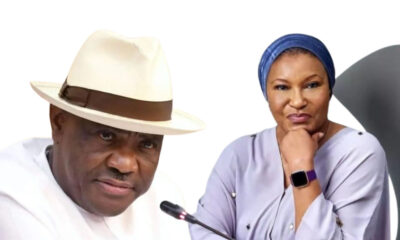
 Politics3 days ago
Politics3 days agoWike Blasts Kingibe Over FCT Council Election Remarks
-

 International3 days ago
International3 days agoIsraeli Airstrikes Kill 31 in Lebanon as Hezbollah Loses Senior Figures
-

 Health3 days ago
Health3 days agoNigeria to Receive Breakthrough HIV Prevention Drug This Month – NACA
-

 metro2 days ago
metro2 days agoDSS Busts Alleged Arms Trafficking Network in Gombe, Seizes RPGs
-

 News2 days ago
News2 days agoRelief Radiant Hearts Foundation Launched in Iwo, Promises Hope for the Vulnerable
-

 Politics2 days ago
Politics2 days agoAtiku’s Son Resigns as Adamawa Commissioner Following Fintiri’s APC Defection
-
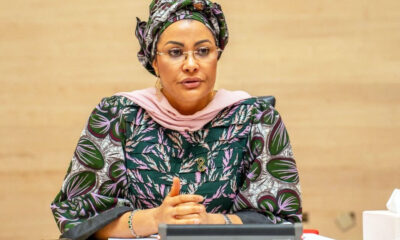
 metro1 day ago
metro1 day agoHow Ikwechegh’s ₦1.15tr Interrogation Led to Tinubu’s Cabinet Shake-Up



